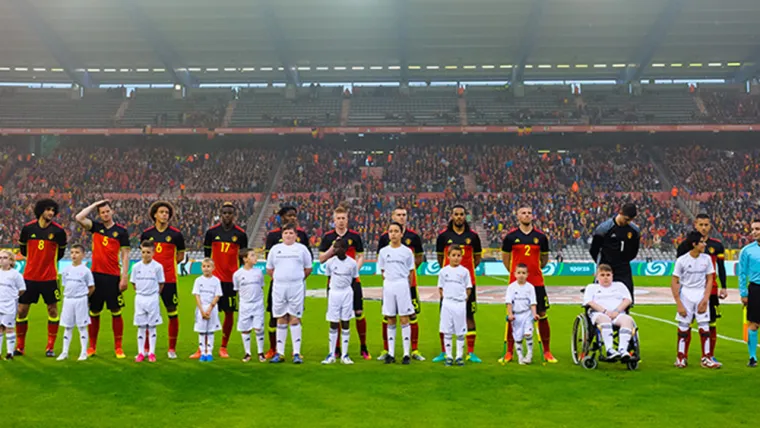DETROIT, Mich. — The guys in the city room have an edge on us. They’re used to handling tragedy, grief and disaster. Even heartbreak.
How do you do it in the sports department?
You do it because you try to be a professional newspaperman. But it isn’t easy. It never is. That’s because we deal with the fun and games aspect of the business.
Even as I write this, I am still a little shaken by what I saw in Tiger Stadium. I saw a man die before my eyes. That’s never happened to me before and it left a sick feeling in my stomach.
I’m speaking of Chuck Hughes, the wide receiver of the Lions, who collapsed on the field near the end of the game with the Chicago Bears and was pronounced dead about an hour later in Ford Hospital of a coronary thrombosis.
I was down on the riverfront the day Chuck Thompson’s hydroplane blew up in front of the main stand, killing him almost instantly. But I really didn’t see it happen. All I saw was the spray of water from the back of his boat and then some pieces of wood flying in the air.
I’ve seen several auto accidents on TV where men have died, but it just isn’t the same. I have written obituaries of many sports figures, some of whom I knew intimately, and this is never easy, either. But I was not there when they died.
Shaken by Bo’s Heart Attack
The toughest moment, until now, was the day of the Rose Bowl game two years ago when they told us that Bo Schembechler, the Michigan coach, was not with the team but was confined to a hospital with “a stomach disorder.”
That sent a chill through me because if you know Bo Schembechler at all, you know it would have taken a major tragedy for him not to be on the sidelines with his team. As the day unfolded, it was discovered that he had suffered a heart attack. That was probably the most difficult story I’ve ever had to write.
But now, in one grim moment, I saw Chuck Hughes fall before my eyes and it was a terrible experience … because you knew the moment they started working over him that something was wrong, something terribly wrong.
What happened was this:
The Lions were trying to pull the game out in the last two minutes. They were losing, 28-23, but they started moving down the field the way you’ve seen so many pro clubs do at the end of a game.
Hughes Grabbed Pass
Hughes, a second stringer on the Lions, was in the lineup because of an injury to the regular wide receiver, Larry Walton. But nobody even noticed him until quarterback Greg Landry whipped a pass over the middle and there was Hughes catching it for a 32-yard gain. Hughes took a terrific smack from Bob Jeter and Garry Lyle, the Chicago defenders, just after he caught the ball.
He got caught in one of those sandwich-type tackles, where two players hit him at once, but nobody thought anything of it because Hughes simply got up, adjusted his helmet and started back to the huddle.
He had only three more plays to live.
On the third and one, the Lions desperately trying to score, Hughes lined up on the right side and took off down the field. He cut over toward the goal post as the pass went to Charlie Sanders. It was incomplete.
Hughes turned downfield and started trotting back to the huddle. I was watching him. Why, I don’t know.
A Common Sight
Suddenly, as he was still on the Chicago side, he pitched forward on his face and sprawled out on the grass.
I didn’t think too much of it because I’d seen players just collapse from exhaustion.
Hughes lay there and nobody seemed to notice him. Several moments passed. The players and coaches on the Lions’ bench couldn’t see him because their view was blocked by the players on the field.
Somebody in the press box murmured: “Somebody better get out there.”
Finally, Dick Butkus of the Bear wandered over and looked down at him.
Butkus began waving frantically over to the Lions’ bench and now they came running toward Hughes — two team doctors and two trainers.
Conjecture Among Writers
They bent over him and began working on him. The big crowd did not seem unduly concerned. It was a familiar scene at a football game: medical men attending a fallen player.
Somebody else in the press box said: “Maybe he swallowed his tongue.”
That made some sense. That has happened before. Or maybe he just had the wind knocked out of him.
But I began to feel a little uneasy. …
Hughes had fallen with nobody around him.
The doctor with his back to the press box seemed to be leaning very close to him. He seemed to be giving him mouth-to-mouth resuscitation. I felt a chill go through me. Now the other doctor began pounding Hughes’ chest, pounding it with his fist.
It got very quiet in the press box. The game, now, meant nothing. Immediately you feared the worst. I’d never seen anyone pound a player’s chest on the field. On the way down in the elevator everyone seemed to look at everyone else with those strange stares — those blank expressions — when you’ve just learned of a tragedy.
Writers Kept Outside
We never did get inside the dressing room. They kept the press outside while the players, coaches and officials of the Lions waited inside for word from the hospital.
The bad news arrived in about an hour. The players filed out solemnly, many of them with their eyes still glazed from tears. They’d seen a teammate die before their eyes and no words can express how they must have felt.
Chuck Hughes was 28. I didn’t know him well, except that every time I saw him or spoke to him, he always seemed to have a smile on his face, and he was certainly one of the friendliest guys on the team.
I can’t believe it happened.



